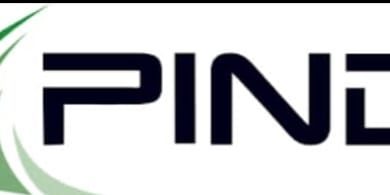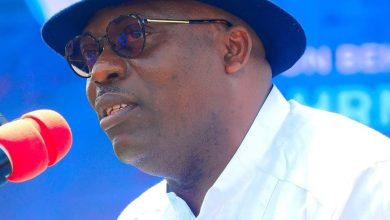Gov Udom Emmanuel’s Request For Fuel Depot: Matters Arising (1)

Barely a week following a retreat held in Uyo by the Nigerian National Petroleum Corporation (NNPC), where the governor of Akwa Ibom State, Mr. Udom Emmanuel, made a strong case for a fuel depot to be located in the state, there appears to be a bold silver lining across the sky. In the first place, to think that Akwa Ibom, arguably the largest contributor of oil to the country, cannot boast of one fuel depot or refinery at her backyard is a serious matter.


Therefore, the news that France’s largest hydrocarbon group, Axens, has won a bidding to license key refinery technologies to one of Nigeria’s leading industrial conglomerates, BUA Group, to build a 200,000bpd refinery and petrochemical plant within the next four years, can best be described as gladdening; depending though on how long the hope might take to fructify.
Although such a wish may have been entertained over the years by successive governors, stakeholders and indigenes of Akwa Ibom State, Governor Emmanuel deserves commendation for using the NNPC retreat in the state to stoke the flames, or as it’s commonly said, “setting the tone” for a necessity long overdue, but which had been neglected or delayed due largely to commonplace Nigerian factor.
Recall that Governor Udom Emmanuel had during his address during the retreat organized by the minister of petroleum for state, Mr. Timipre Sylva, held at Ibom Hotels and Golf Resort, Uyo, argued that it was time the NNPC thought in the direction of compensating Akwa Ibom with a depot for her huge contributions to the national development.
Related: The FG’s “Game Changer” Package For Akwa Ibom
The governor reasoned that such a feat will boost his administration’s effort at expanding and transforming the economic fortunes of the state, thereby creating employment opportunities for the ever-bourgeoning unemployed and dependent demography of the state. On the strength of the state’s existing infrastructure and peaceful environment, Mr. Emmanuel emphasized that there was deliberate effort by his administration to reposition the state socio-economically towards launching out as a strategic partner in the oil and gas sector.
Hence, with France, which success story in the management of an oil giant like Total in Nigeria, having indicated such strong interest in siting a composite refinery in Akwa Ibom, there could be but no doubt that the state is set to experience a new lease of life in terms of revenue generation and employment opportunities. Indeed, this possibility must be an added boost to Governor Emmanuel’s vision and industrialization template for the state.
At the signing ceremony in France’s capital, Paris, Tuesday, September 1, 2020, Abdulsamad Rabiu, chairman of BUA Group, stated that the new mega projects would go concurrently with other large scale refinery projects in the country. He disclosed that the project, with target capacity to produce 200,000 barrel per day (bpd), is projected to become operational in 2024. Reports say the agreement was officially endorsed by Abdulsamad Rabiu, chairman of BUA Group and CEO of AXENS, Jean Sentenac, presided by a delegate from France’s Ministry of Foreign and Economic Attractiveness.
Presently, Nigeria’s daily consumption of petroleum products is estimated at 500, 000 to 550, 000 barrels per day and she imports 90 per cent of its petroleum products. This situation accounts for the about 35 per cent of foreign exchange being spent on importation of petroleum products alone. The project, which on completion is expected to bring about critical reversal in Nigeria’s oil importation statistics, therefore, shall complement the 600, 000bpd that Dangote’s ongoing refinery construction will produce in addition.
At a time the COVID-19 pandemic adversely affects practically every small and big investments globally, fears about the feasibility of the refinery project in Akwa Ibom State have been allayed. Sources say the refinery will be built using an undisclosed pool of debt and equity, incorporating several development and commercial banks in solidarity with BUA. COVID-19 can also be seen as a positive stimulus to France’s need to strengthen its socio-economic and foothold in Africa in the face of increasing competitive interests from the West and Asia in recent times.
Already, by winning the contract to build the refinery in Akwa Ibom, France’s AXENS is said to have forced into capitulation a fierce competitor like America’s Honeywell UOP that even had crossed into the final round of the bid. This superiority, according to reliable sources, must have been facilitated by the determined and auspicious interest invested in the project by France’s President, Macron, whom a source has stated, “has given special determination and support to this project”.
Discreetly and strategically sited on Akwa Ibom’s endowed waterfront, with a flourishing regional and transcontinental demand, BUA’s chairman apparently having in mind the possibility of the Ibom Deep Seaport and other emerging oil-allied concerns, had maintained with optimism, “We will have the marine infrastructure for easy export. And the external market for polypropylene is very strong”.
Polypropylene is a combination of other things derivable from petroleum as by-products for the production of plastics and packaging. The BUA Group’s MD had added that other associated products like high-quality gasoline, diesel, and jet fuel for the Nigerian market and outside will also be produced by this integrated complex. The summary is that, by and large, the project will greatly reduce Nigeria’s dependence on imported fuel and petrochemical products.
When and if the proposed refinery is actualized, BUA is expected to boost its annual production capacity to 11 million tonnes. Rabiu was quoted as saying, “10 million tonnes per annum refinery and petrochemical project is in line with BUA’s vision to develop local capacity in key industries where we can add most value and where raw materials can be sourced locally”.
Of course, not to be forgotten is the fact that in 2017, the NNPC had also announced that France, through the French Development Agency, had set aside sums in the tune of US$1.4bn to be invested in the Nigerian oil and gas industry. France’s Ambassador to Nigeria, Denys Gauer, made it known when a delegation led by Ndu Ughamadu met him in Abuja. Whereas whether or not that came to be cannot easily be ascertained, the latest announcement in favour of Akwa Ibom State by the same authority therefore could be seen as an icing on the cake.
There is the prognosis that should France drive this dream with the focus, approach and desire typical of her transcontinental interests at having a considerable share of Africa’s and Nigeria’s hugely latent and vibrant fortunes, the Ibom Deep Seaport stands a great chance to benefit from it. At this point, the oscillation and manoeuvres with which the Federal Government handles the Ibom Deep Seaport comes with deeper concern.
In specific terms, because refineries and oil in the Nigerian context are largely controlled and better benefitted by the Federal Government, judging by percentages of incomes accruable and dispensable, President Muhammadu Buhari should be able to draw a comparison between his characteristic interest and commitment to the actualization of the Ibom Deep Seaport and the measure of quality determination already shown by France’s President Macron in the proposed refinery in Akwa Ibom State. This must be no time for grandstand rhetoric and theatrics.
Governor Udom Emmanuel’s request for a fuel depot in Akwa Ibom State was timelier than his speech may have conveyed. It is unexplainable that although Akwa Ibom is arguably the most vibrant fountain of crude in the country, the heaviest consignment of petrol (PMS) to the state is still lifted either from depots in Port Harcourt or Calabar. Thinking about the nightmarish experiences the Clabar-Itu Road offers tankers’ drivers make matters worse.




